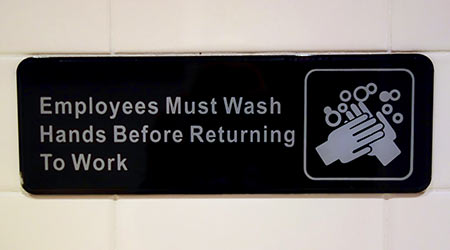
Changing hand hygiene behaviors has plagued facility cleaning managers for years. According to an article from Deb Group, motivations such as money, peer pressure, or other incentives have proven to be successful in the short term. But incentives that result in long-term behavioral changes continue to challenge professionals.
Because proper hand hygiene is so critical in the fight against infections, researchers at Harvard Business School conducted a study on the psychology of changing a person’s habits. They found that social pressure and the desire to succeed for the benefit of the entire group can be a powerful and lasting motivator.
In the study, researchers compared the adoption of hand-hygiene behavior modifications at a California hospital between two groups: one receiving monetary rewards for a team behavior change, and the other relying solely on the implicit incentive of an organizational behavior modification, a.k.a. peer pressure.
The researcher found that the group receiving monetary incentives were more likely to adopt the new hand hygiene behaviors initially, but that those changes were relatively short-lived compared to the group exposed to peer pressure only.
For information on reasons people listed for not washing up, and recommendations for when it is essential to wash hands, click here.

 The Down and Dirty on Cleaning in Virus Season
The Down and Dirty on Cleaning in Virus Season How Surfactant Use is Expanding in Commercial Cleaning
How Surfactant Use is Expanding in Commercial Cleaning Clean Buildings Conference
Clean Buildings Conference